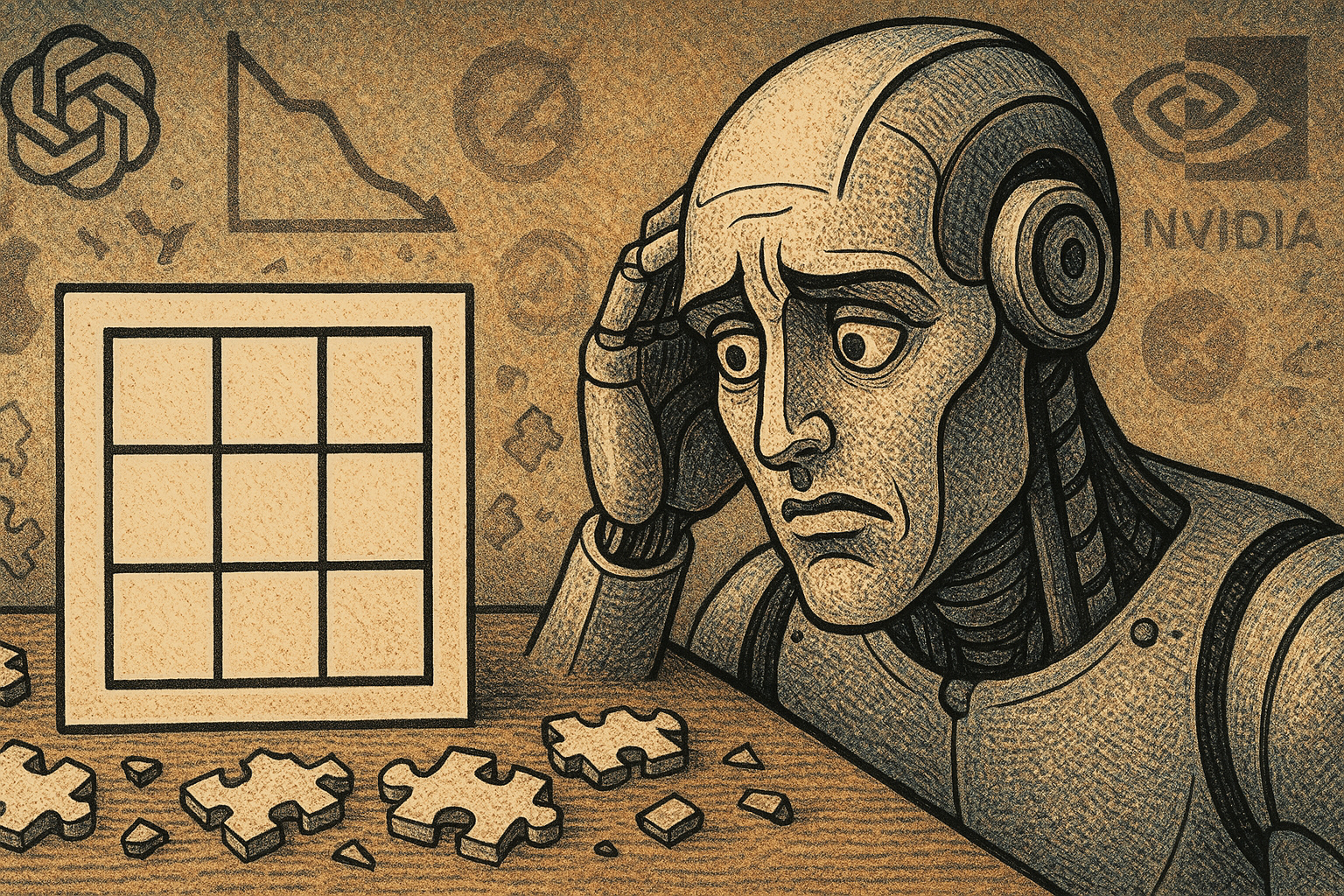The AI industry has long promised that reasoning models, systems designed to mimic human-like problem solving, are the next leap toward superintelligence. But a blistering new CNBC report led by anchor Deirdre Bosa suggests that promise may be dangerously overhyped.
In “The AI Boom’s Multi-Billion Dollar Blind Spot” Bosa dissects the growing skepticism around AI’s so-called reasoning capabilities. Backed by interviews with top tech leaders and a string of recent research, including a headline grabbing Apple paper titled “The Illusion of Thinking“. The report casts doubt on whether today’s most advanced models are truly reasoning, or just pattern matching at scale.
When problems get hard enough, reasoning models stop working. Even worse, they don’t generalize. That means they may not be thinking at all. They’re just guessing, based on what they’ve seen before.
summarizes Deirdre Bosa, CNBC anchor.
A Reality Check from Apple and Beyond
Apple’s June white paper serves as the report’s centerpiece, presenting a deceptively simple test: the classic Towers of Hanoi logic puzzle. Leading models from Anthropic, DeepSeek, and OpenAI perform decently on easy tasks, but as puzzle complexity increases, their reasoning accuracy collapses to zero.
Other labs are sounding alarms too. Salesforce warns of “jagged intelligence” in enterprise AI deployments. Anthropic released its own paper, “Reasoning Models Don’t Always Say What They Think” while China’s LEAP lab found current methods fail to produce genuinely novel reasoning abilities.
What looks like intelligence, might just be memorization.
warns Deirdre Bosa, CNBC anchor.
If it doesn’t generalize, you have to train them again and again. We might be heading into an era of AI fragmentation, specialized, not super.
said Ali Ghodsi, CEO of Databricks.
The High-Stakes Bet on Superintelligence
That’s a problem, because much of the AI trade is predicated on the idea that larger models with more data will lead to more intelligence, a principle dubbed the “scaling law”.
Nvidia CEO Jensen Huang has been among the most vocal champions of this belief. “Reasoning models will require mountains more compute” he said, predicting that AI inference at scale is now an “extreme computing problem” Nvidia’s stock, and the broader AI infrastructure boom, are riding on that thesis.
But if reasoning doesn’t scale, the implications are serious, not just for tech giants like OpenAI, Google, and Microsoft, but also for enterprise buyers spending billions in hopes of AI-driven transformation.
If the payoff doesn’t materialize, the entire premise could be rethought.
notes Deirdre Bosa, CNBC anchor.
A Fracturing Industry Narrative
The CNBC report also highlights tensions behind the scenes. Apple’s motivations are questioned. Are they raising flags out of scientific rigor, or because they’re playing catchup?
Industry watchers, like Gene Munster, say Apple may simply be “resetting the narrative” around AI intelligence timelines. That narrative reset could have massive ripple effects, especially for partnerships like Microsoft and OpenAI, which hinge on when AGI (Artificial General Intelligence) is formally declared.
Once OpenAI declares AGI, the partnership ends. Which means the definition of intelligence and who gets to call it could determine who controls the future of AI.
reveals Deirdre Bosa, CNBC anchor.
